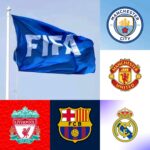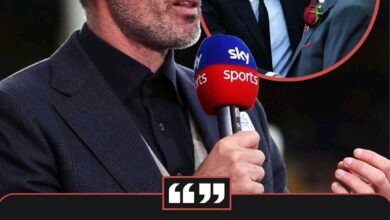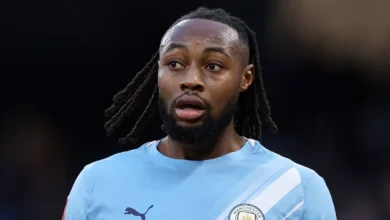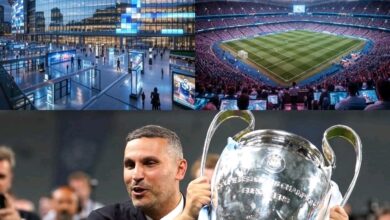The Premier League should be scared to death after what Pep Guardiola was overheard saying in Man City training
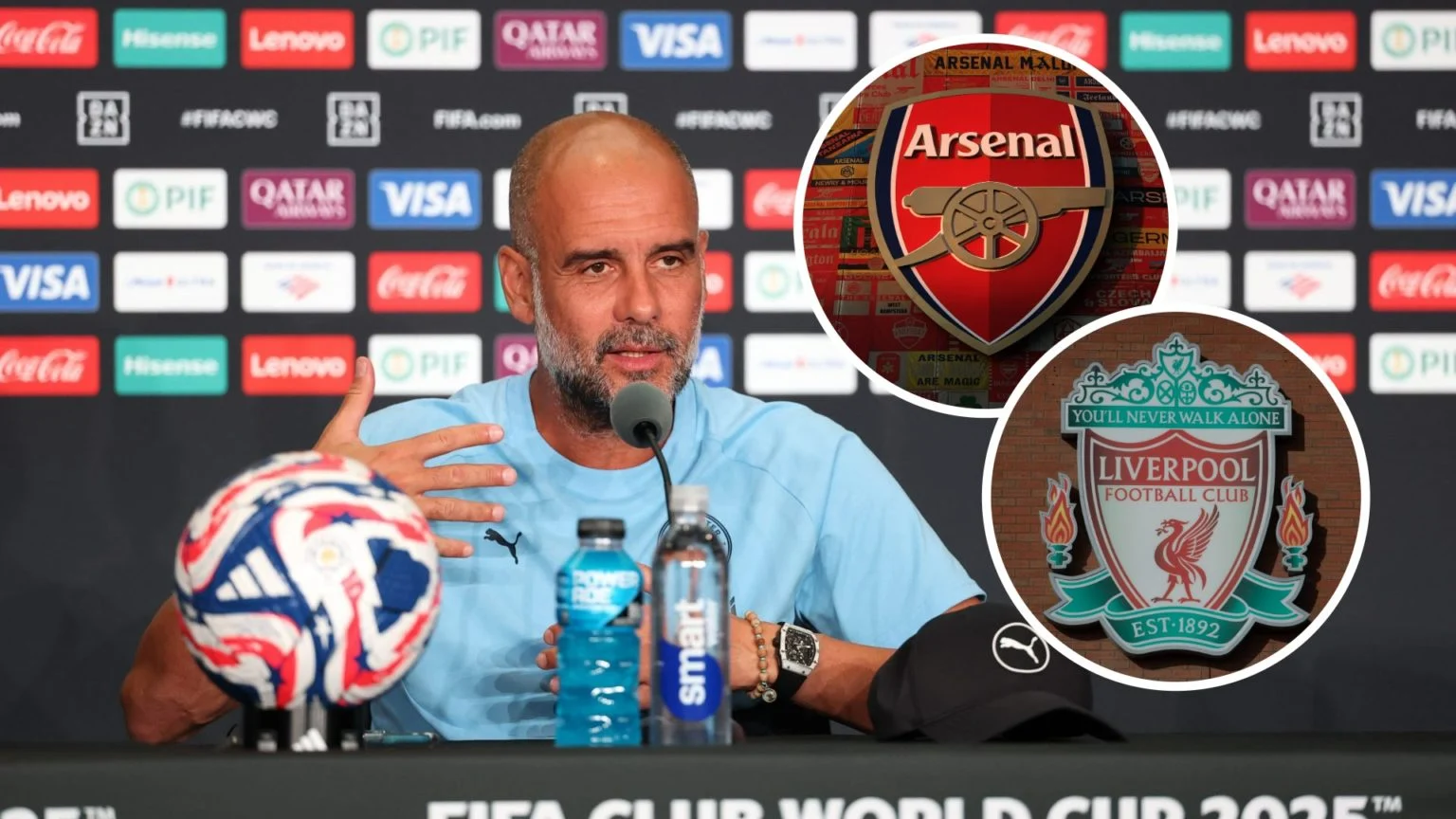
The Manchester City training ground at the Etihad Stadium has always been a place of innovation and tactical brilliance under Pep Guardiola’s watchful eye. But this summer, something different is happening. As the 2025/26 Premier League season approaches, observers and journalists monitoring City’s preparations have noted a palpable shift in atmosphere—one that should send shivers down the spines of Liverpool, Arsenal, and every other Premier League club with title ambitions.
The Quote That Changed Everything
During a routine training session ahead of Manchester City’s participation in the FIFA Club World Cup, Pep Guardiola was overheard delivering what might become one of the most significant motivational moments of the summer. Speaking to defender Nathan Ake, the Catalan coach was reported as saying, “It’s good to be back, come on – we’ll rest when we die,” before the team boarded their flight to Palm Beach airport.
These words, captured by Daily Mail journalist Jack Gaughan, reveal far more than a simple pre-tournament pep talk. They represent the mindset of a manager who has rediscovered his hunger, his passion, and his relentless drive for success. After what many considered a disappointing 2024/25 campaign by Manchester City’s lofty standards, Guardiola appears to have undergone a personal renaissance that could spell trouble for the rest of English football.
The Context of Disappointment
To understand the significance of Guardiola’s renewed energy, it’s crucial to examine what went wrong last season. After becoming the first team in English top-flight history to win four consecutive Premier League titles, Manchester City’s dynasty appeared unstoppable. The club had reached unprecedented heights under Guardiola’s guidance, combining tactical sophistication with relentless winning mentality.
However, the 2024/25 season told a different story. City managed just 21 wins from 38 Premier League matches, accumulating 71 points—a total that would have been respectable for most clubs but represented a significant decline for the Sky Blues. With eight draws and nine defeats, it was their worst Premier League performance since Guardiola’s early years at the club.
The statistics paint a stark picture of City’s struggles. Comparing their 2024/25 campaign to their previous four seasons reveals the extent of their decline:
2023/24: 28 wins, 7 draws, 3 defeats, 91 points 2022/23: 28 wins, 5 draws, 5 defeats, 89 points 2021/22: 29 wins, 6 draws, 3 defeats, 93 points 2020/21: 27 wins, 5 draws, 6 defeats, 86 points 2024/25: 21 wins, 8 draws, 9 defeats, 71 points
The 20-point drop from their 2023/24 total represents one of the most dramatic declines in form by a defending champion in Premier League history. Multiple factors contributed to this underwhelming campaign, including injuries to key players, tactical adjustments by opponents who had studied City’s methods intensively, and perhaps most significantly, questions about whether Guardiola himself had lost some of his motivational edge.
Signs of Tactical Stagnation
Throughout the disappointing 2024/25 season, there were whispers within football circles that Guardiola’s methods had become predictable. Opponents had eight years to study his tactical approach at Manchester City, and many had developed effective counter-strategies. The famous ‘Guardiola press,’ his intricate passing patterns, and his positional play principles were being nullified by well-organized defensive systems.
Reports emerged suggesting that even within the City dressing room, some players were beginning to question certain tactical decisions. This represented a seismic shift for a manager whose authority had rarely been challenged during his tenure at the Etihad Stadium. The psychological impact of this internal doubt cannot be understated—when players begin to second-guess their manager’s methods, it often signals the beginning of the end for even the most successful coaches.
The Champions League campaign provided further evidence of City’s struggles. Despite reaching the quarter-finals, their performances lacked the clinical precision and tactical fluidity that had characterized their previous European campaigns. They were eliminated by Real Madrid in a tie that many felt they should have won, leading to further questions about whether Guardiola’s cycle at the club was coming to an end.
The Summer of Transformation
However, the close season brought dramatic changes that appear to have revitalized both the club and its manager. Manchester City’s transfer activity demonstrated clear intent to rebuild and refresh their squad. Four new signings arrived at the Etihad Stadium, each bringing different qualities and tactical options that seem to have re-energized Guardiola’s approach to the game.
More significantly, Guardiola made substantial changes to his coaching staff, bringing in fresh voices and new perspectives. The appointment of Pepijn Lijnders as an assistant coach has been particularly influential. Lijnders, who previously worked as Jürgen Klopp’s assistant at Liverpool, brings intimate knowledge of how to counter City’s traditional style and offers insights into different tactical approaches.
These changes represent more than simple squad refresh—they suggest a manager willing to evolve and adapt his methods. For a coach often criticized for his tactical rigidity in certain situations, this willingness to embrace new ideas and perspectives could prove crucial in rekindling City’s dominance.
The Energy Revolution
The most striking change, however, has been in Guardiola himself. Multiple sources from within the City camp have reported that the 54-year-old appears “objectively bubblier” than he has in recent years. This renewed enthusiasm is evident in training sessions, where his intensity and engagement levels have returned to the heights seen during his first few seasons at the club.
This psychological transformation cannot be underestimated. Guardiola has always been an emotional manager whose mood and energy levels directly influence his players’ performances. During City’s peak years, his passionate touchline displays and intense training ground sessions were legendary. Last season, observers noted a more subdued version of the Catalan coach, leading to speculation about burnout and declining motivation.
The FIFA Club World Cup has provided an unexpected catalyst for this renewal. Rather than viewing the tournament as an unwelcome distraction, Guardiola has embraced it as an opportunity to test his new signings in competitive action earlier than usual. This pragmatic approach demonstrates his renewed strategic thinking and suggests he’s viewing the upcoming season with fresh eyes.
Tactical Innovation and New Ideas
Guardiola’s renewed energy appears to be translating into tactical innovation. Training ground reports suggest he’s experimenting with new formations and playing styles that incorporate the strengths of his new signings while addressing the weaknesses exposed last season. The arrival of fresh coaching voices has clearly influenced his thinking, with observers noting subtle but significant changes to City’s traditional patterns of play.
The integration of new players into Guardiola’s system has historically been a lengthy process, but early indications suggest this summer’s signings are adapting more quickly than usual. This could be attributed to both the players’ quality and Guardiola’s refreshed approach to coaching and communication.
Perhaps most intriguingly, there are suggestions that Guardiola is developing contingency plans and alternative tactical approaches that could make City less predictable than they became toward the end of last season. This tactical flexibility, combined with his renewed energy, could prove devastating for Premier League opponents who had grown comfortable defending against City’s traditional methods.
The Broader Implications for Manchester City
The transformation extends beyond Guardiola himself to encompass the entire club structure. The decision to make significant changes to both playing staff and coaching personnel demonstrates a willingness to acknowledge problems and take decisive action. This level of self-awareness and adaptability is often what separates truly great organizations from those that experience temporary success.
Manchester City’s approach to the summer transfer window has been particularly astute. Rather than panic-buying high-profile names, they’ve targeted specific players who address tactical needs and complement Guardiola’s evolving philosophy. This strategic recruitment, combined with the manager’s renewed enthusiasm, creates a potent combination that could restore City to their previous dominance.
The club’s participation in the FIFA Club World Cup, initially viewed by some as a potential distraction, has become an unexpected advantage. It provides Guardiola with competitive matches to test his new systems and players before the Premier League season begins, essentially giving City a head start over their domestic rivals.
The Liverpool Challenge
Liverpool’s dominance in the 2024/25 season was comprehensive and impressive. Arne Slot’s team won the Premier League with relative ease, establishing themselves as the new standard-bearers in English football. Their success was built on tactical discipline, physical intensity, and mental strength—qualities that had previously been hallmarks of Guardiola’s City teams.
The Reds have further strengthened their squad with the additions of Jeremie Frimpong, Florian Wirtz, and Milos Kerkez, addressing key areas while maintaining the core of their successful team. This continuity, combined with their recent success, makes them rightful favorites for the upcoming season.
However, Liverpool’s success last season came partly due to City’s decline. Facing a rejuvenated Guardiola team with renewed energy and tactical innovation presents a different challenge entirely. The psychological warfare between these two tactical masters—Slot and Guardiola—could define the upcoming season.
Moreover, City’s historical record under Guardiola suggests they respond well to setbacks. Their previous periods of dominance often followed seasons where they fell short of expectations, suggesting that last season’s disappointment might have provided the motivation needed for a spectacular comeback.
Arsenal’s Ongoing Struggles
Arsenal’s situation provides an interesting contrast to City’s proactive approach to addressing problems. Despite finishing strongly last season and showing consistent improvement under Mikel Arteta, the Gunners have been relatively quiet in the transfer market. This lack of significant reinforcement could prove costly when facing a reinvigorated City team.
Arteta, having worked closely with Guardiola at City, understands better than most how dangerous his former mentor can be when properly motivated. The Arsenal manager’s comments throughout the summer suggest he’s well aware of the threat posed by a rejuvenated City side, but whether his club’s hierarchy shares this concern remains unclear.
The North London club’s failure to significantly strengthen their squad while their main rivals have made notable improvements could see them fall further behind in the title race. This would represent a missed opportunity given their positive trajectory in recent seasons.
The Psychological Warfare
Guardiola’s renewed energy and public statements represent more than personal motivation—they constitute psychological warfare against his rivals. By demonstrating his renewed commitment and enthusiasm, he’s sending a clear message to the rest of the Premier League that Manchester City’s period of vulnerability is over.
The timing of these revelations is particularly significant. By allowing journalists to observe and report on his renewed energy during training sessions, Guardiola is engaging in subtle mind games that could unsettle opponents before the season even begins. This psychological approach has always been part of his management style, but its return suggests he’s operating at full capacity once again.
Historical Precedent
Guardiola’s career provides several examples of how he responds to periods of disappointment or stagnation. At Barcelona, his team’s incredible run of success was punctuated by moments of tactical evolution and personal renewal. His time at Bayern Munich, while successful, also showed his ability to adapt and innovate when faced with new challenges.
The pattern suggests that Guardiola is at his most dangerous when written off or when facing adversity. The combination of personal motivation, tactical innovation, and institutional support that currently exists at Manchester City mirrors the conditions that produced his greatest successes at previous clubs.
The Broader Premier League Impact
The implications of Guardiola’s renaissance extend beyond the title race to encompass the entire Premier League ecosystem. City’s return to peak performance levels would likely raise the overall standard of competition, forcing other clubs to improve their own operations and tactical approaches.
Smaller clubs that had begun to close the gap during City’s vulnerable period might find themselves falling behind once again. This could impact everything from European qualification battles to relegation scraps, as City’s renewed dominance would likely have cascading effects throughout the league table.
The tactical influence of a rejuvenated Guardiola could also spark innovation among other Premier League managers. His previous periods of success have often coincided with league-wide tactical evolution, as opponents develop new methods to counter his approaches.
Looking Ahead: The Season of Reckoning
As Manchester City prepare for their opening fixture against Wolves, the football world will be watching closely for early signs of Guardiola’s impact. The match will provide the first competitive glimpse of how his tactical innovations and renewed energy translate to Premier League action.
The broader season promises to be one of the most compelling in recent memory. Liverpool’s established dominance faces a direct challenge from a potentially rejuvenated City side, while Arsenal and other contenders must navigate the changing dynamics of elite English football.
For Guardiola personally, the upcoming campaign represents a chance at redemption and a return to the pinnacle of his profession. His career has been defined by periods of dominance punctuated by moments of tactical evolution and personal growth. All evidence suggests that this summer has provided another such moment.
Conclusion: A Warning to the Premier League
The signs emerging from Manchester City’s training ground paint a clear picture: Pep Guardiola is back, hungrier than ever, and armed with new ideas, fresh players, and renewed energy. His declaration that “we’ll rest when we die” represents more than motivational rhetoric—it’s a statement of intent that should strike fear into the hearts of every Premier League rival.
The combination of Guardiola’s tactical genius, City’s financial resources, and the manager’s renewed passion creates a potentially unstoppable force. Liverpool may enter the season as favorites, but they face the prospect of battling a rejuvenated City team that knows exactly what it takes to dominate English football.
The Premier League’s other contenders have been warned. Manchester City’s period of vulnerability appears to be over, and with Pep Guardiola displaying the energy and enthusiasm that characterized his greatest successes, the 2025/26 season could mark the beginning of a new era of Sky Blue dominance.
The rest of the Premier League should indeed be scared—very scared indeed.
